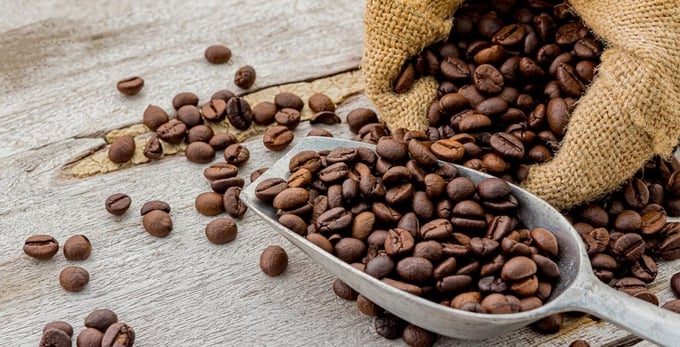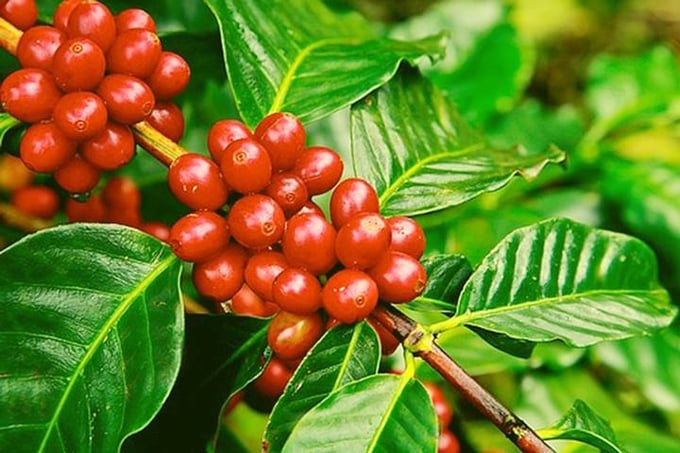May 22, 2025 | 15:06 GMT +7
May 22, 2025 | 15:06 GMT +7
Hotline: 0913.378.918
May 22, 2025 | 15:06 GMT +7
Hotline: 0913.378.918
On May 16, 2023, the European Parliament (EP) passed the European Union Deforestation Regulation (EUDR). The regulation is set to come into effect on December 30, 2024. Under the new rules, coffee is one of seven product categories that will be banned from being imported into the EU if its production is linked to deforestation occurring after December 31, 2020.
The EU is currently the largest coffee importer in the world, accounting for approximately 33 - 35% of the global market share. In Vietnam, the EU is the largest coffee export partner, representing around 38% of the total annual coffee exports. As a result, the introduction of the new regulation by the EU has raised concerns both domestically and internationally about potential disruptions in the supply and demand balance.

In Vietnam, the EU is the largest coffee export partner, representing around 38% of the total annual coffee exports.
Market concerns quickly began to manifest in coffee price movements throughout 2024. As the EUDR implementation deadline approached in the early months of the year, combined with historically low coffee stock levels in Europe, EU countries began a rush to import coffee to secure supplies before the regulation takes effect on December 30.
This situation was further exacerbated by the fact that 2024 was also expected to see a reduction in coffee production in several key producing countries, primarily due to extended periods of drought. With demand continuing to rise and supply beginning to tighten, the coffee market found in a state of local supply-demand imbalance. This shift in the supply-demand dynamic also fueled a surge in speculative trading in the coffee futures market, contributing to the continuous price hikes, which saw coffee prices hitting new highs.
However, a turning point occurred in early October when the European Commission (EC) proposed a one-year delay in implementing the EUDR. This proposal was quickly endorsed by the EU Council (EUCO), and the market’s response was immediate. Coffee prices began to react, as speculators adjusted their positions, no longer betting on a further increase in prices.
According to data from the Vietnam Commodity Exchange (MXV), the price of Robusta coffee on the Intercontinental Exchange - Europe (ICE-EU) dropped by 10% in just two trading sessions following news of the European Commission's (EC) proposal. At the same time, prices continued their downward trend throughout October, losing the historical price peak.
However, the proposed delay quickly faced opposition from environmental organizations. The final decision on the EUDR implementation timeline will be voted on by the European Parliament (EP) on November 13-14.
With just under a week to go before the European Parliament (EP) makes its official decision on the implementation timeline of the EUDR, the market is currently divided into two main viewpoints. One side argues that the EU should continue with the original EUDR implementation plan to uphold commitments on climate change (IPCC). The other side insists that the EU should delay the implementation of the anti-deforestation regulation, as proposed by the European Commission (EC). Based on these differing perspectives, MXV has outlined two potential price scenarios following the EP’s final decision on the EUDR timeline.
Scenario 1: If the EU decides to stick with the original EUDR timeline, starting from December 30, 2024, this decision will likely receive strong support from environmental organizations but will present a major obstacle for the current coffee supply chain. Coffee-producing countries around the world may not yet be fully equipped to meet the EUDR requirements, while importing countries will be racing to secure supplies to ensure steady consumption. In this case, the market would likely see two distinct reactions.

On November 13-14, the EU will make an official decision on the implementation timeline of the EUDR regulation.
In the short term, importing countries are expected to significantly increase their coffee purchases in the remaining months of 2024, leading to a sharp rise in demand. However, supply in the market is unlikely to keep up with this sudden surge in demand, especially as Vietnam, a major coffee producer, has only just begun its harvest for the 2024-2025 season. This mismatch between supply and demand will create a situation where demand outstrips supply, providing strong support for coffee prices in the final two months of the year.
In the longer term, countries that are unable to fulfill the supply requirements of large buyers, such as the EU, will be forced to look for new markets to serve. Similarly, importing countries will need to identify new sources of coffee that meet the necessary sustainability and production criteria, ensuring they can continue to satisfy consumer demand. This adjustment process will take time as the market works to stabilize the supply-demand balance.
Scenario 2: In the event that the EU decides to delay the implementation of the EUDR, most likely by 12 months as proposed by the European Commission (EC), this decision would likely receive widespread support from stakeholders within the coffee supply chain, as opposed to environmental organizations.
If this scenario unfolds, coffee-producing countries will be granted additional time to fully meet the new standards outlined by the EUDR. . Simultaneously, importing countries within the EU would not be pressured to make large, last-minute purchases to secure supplies by the end of 2024. As a result, the supply and demand dynamics in the coffee market would temporarily stabilize, reducing the risk of price volatility. Furthermore, the new supply from the upcoming 2024-2025 coffee harvest in Vietnam would help meet the market's demand for coffee. With these factors in play, global coffee prices are expected to stay below 4.700 USD/ton, rather than reaching new highs. Similarly, domestic coffee prices in producing countries, such as Vietnam, would likely remain in a stable range, fluctuating between 4 and 4.5 USD/kg.
Commenting on the EU's decision regarding the implementation of the EUDR regulation, Mr. Nguyen Ngoc Quynh, Deputy CEO of the Vietnam Commodity Exchange (MXV), stated that all scenarios are possible. However, the EU is likely to lean toward extending the timeline, as the bloc must still consider the need to ensure internal supply stability. This is especially important given the current market trend of supply shortages.
Nevertheless, he emphasized that the "greening" of markets and addressing environmental concerns, including long-term sustainability goals, is an inevitable trend. Even if the regulation is not enforced immediately, these environmental considerations will continue to shape the future direction.
Translated by Phuong Linh
![Reducing emissions from rice fields: [3] New values generated from carbon credit](https://t.ex-cdn.com/nongnghiepmoitruong.vn/608w/files/content/2025/05/19/dsc09613-144700_71-150957.jpg)
(VAN) In addition to helping safeguard the environment, the low-emission rice cultivation model also generates new opportunities for farmers by leveraging the carbon credit market.
![Ho Chi Minh city adapts to climate change: [1] Vulnerable in the whirlwind of development](https://t.ex-cdn.com/nongnghiepmoitruong.vn/608w/files/duyenht92/2025/05/19/3131-ngap-nongnghiep-163121.jpg)
(VAN) As the country's economic engine with a rapid urbanization rate, Ho Chi Minh city is facing increasingly serious consequences of climate change.

(VAN) On May 21, Minister of Agriculture and Environment Do Duc Duy worked with Mr. Olivier Brochet, Ambassador Extraordinary and Plenipotentiary of the French Republic to Vietnam.

(VAN) VRG recently conducted a visit and working trip to the United States to demonstrate its efforts in redefining the role of rubber enterprises in the global value chain.

(VAN) In 2024, over 295 million people across 53 countries and territories faced acute hunger—an increase of almost 14 million people compared to 2023, while the number of people facing catastrophic levels of hunger reached a record high.

(VAN) World Environment Day 2025 (June 5) carries the theme 'Beat Plastic Pollution' continuing to emphasize the global urgency of addressing the plastic waste crisis.

(VAN) This was the assessment shared by experts at the workshop titled 'Assessing the Role and Potential of Low-Emission Rice Production Systems in Vietnam,' held on the morning of May 19.